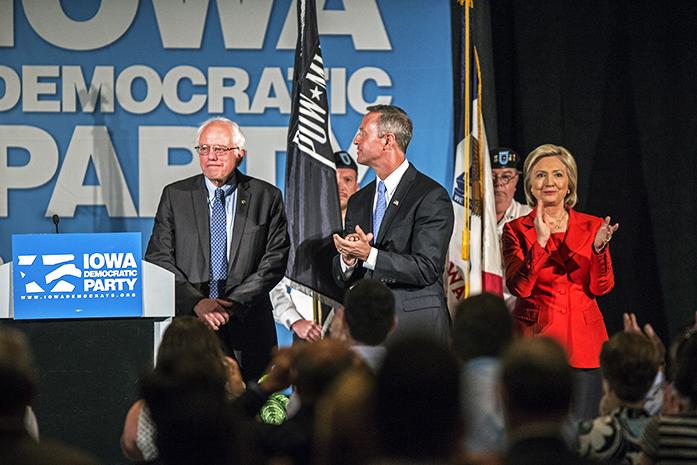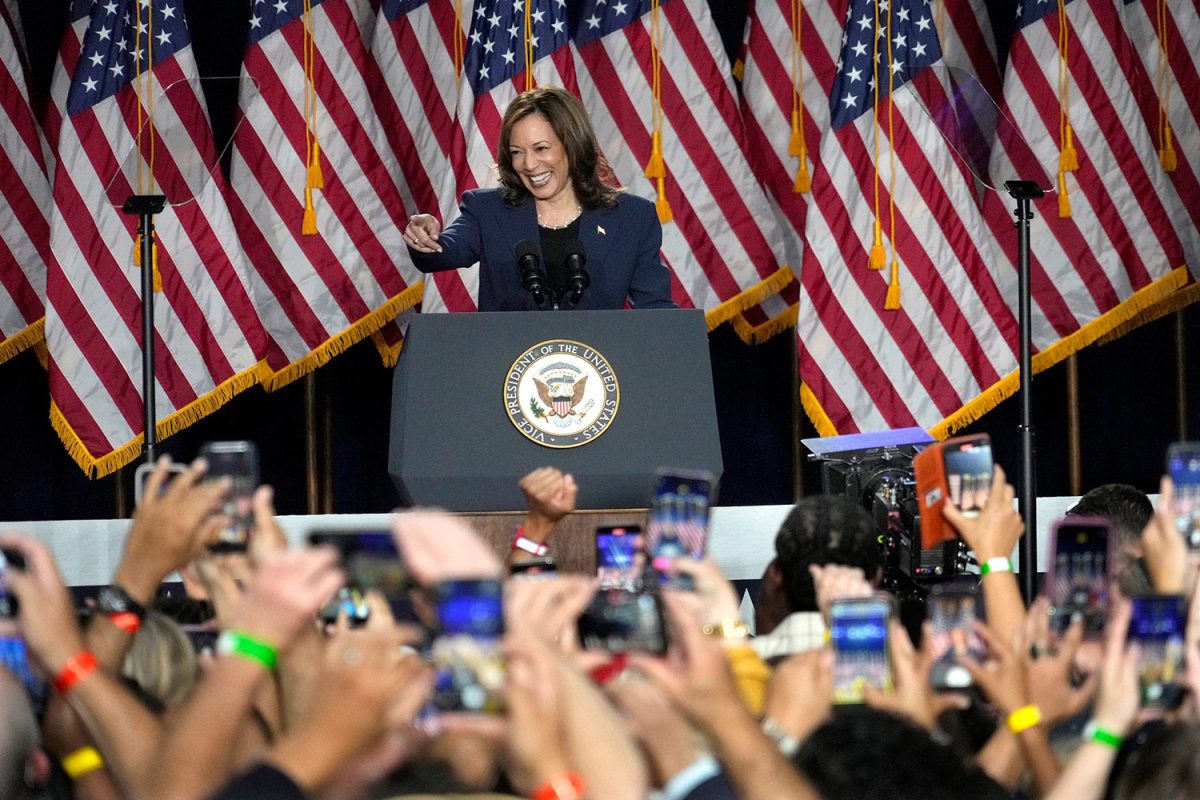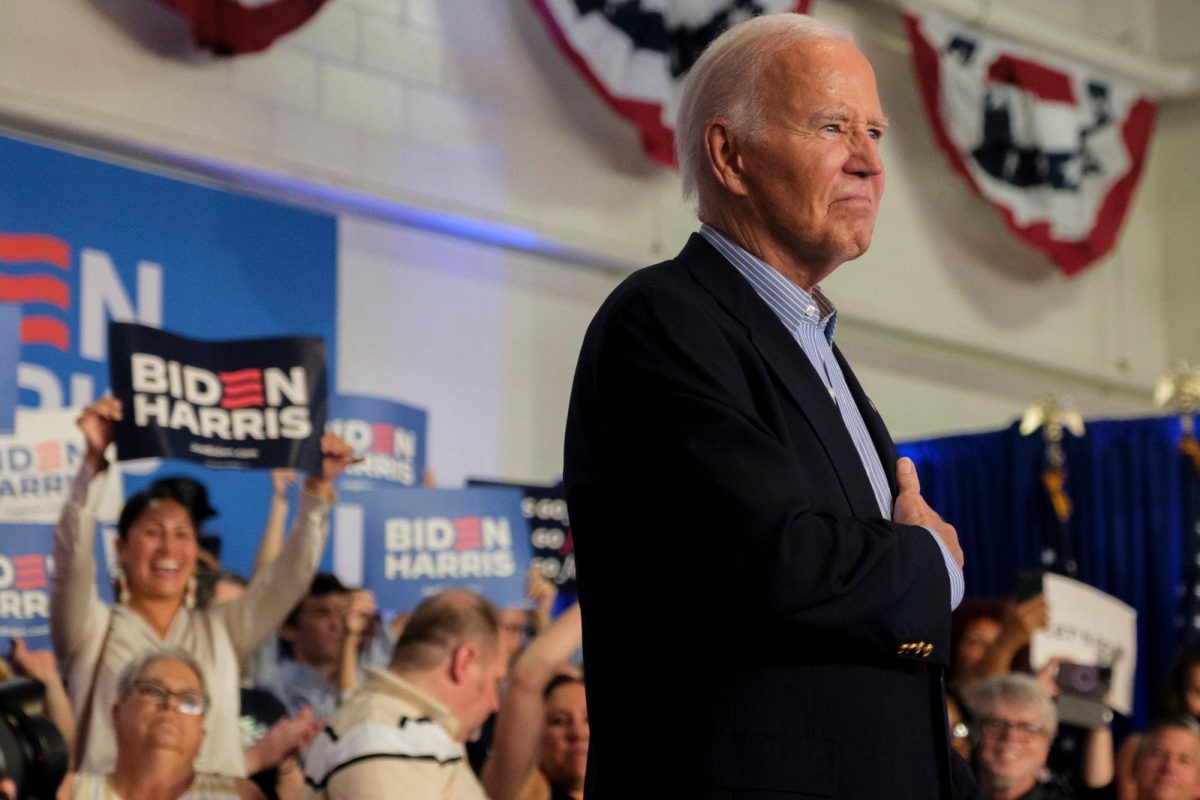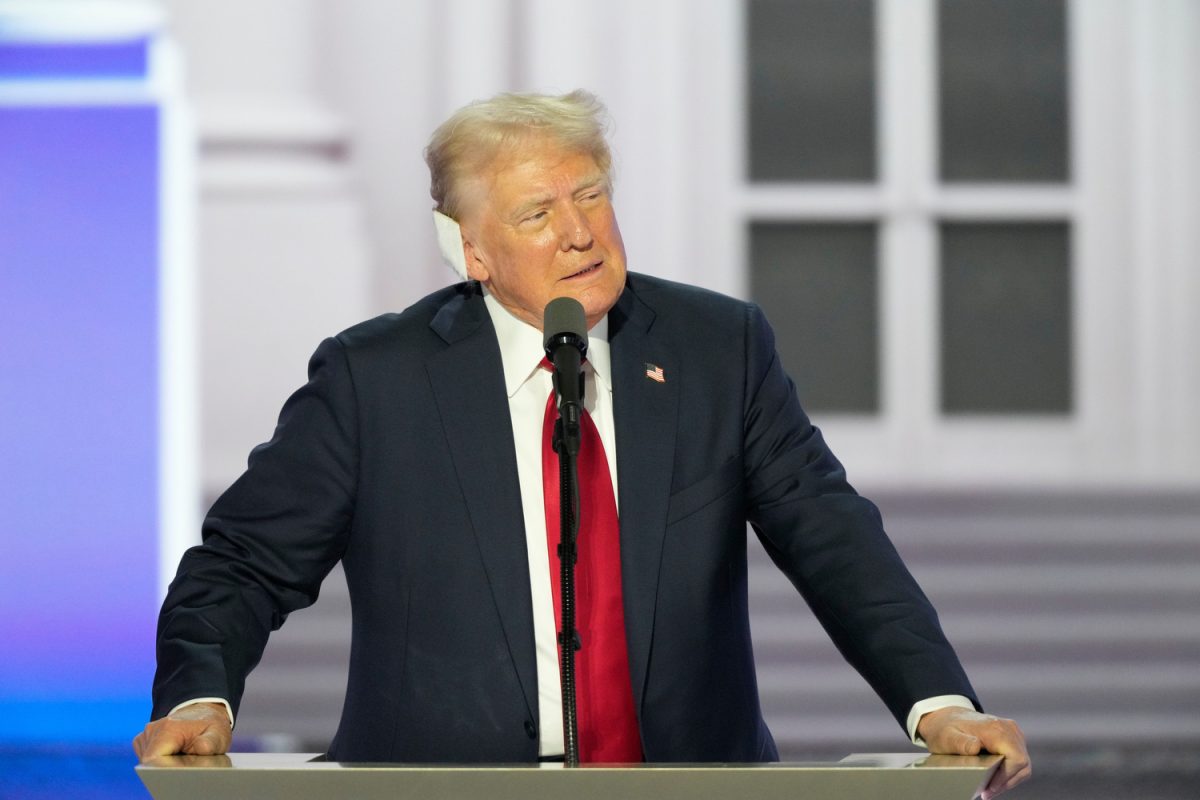By Aaron Walker
[email protected]
Sanders, “unelectable,” such as 2007 Obama?
Pundits and politicians have repeatedly called the Vermont senator Bernie Sanders unelectable, but he has compared himself to another “unelectable” candidate, Barack Obama.
“Eight years ago, the experts talked about how another Democratic candidate for president, Barack Obama, couldn’t win, how he was unelectable,” Sanders said. “Well, Iowa, I think we’re going to have to prove the pundits wrong again.”
And he’s already ahead of the game.
Without a Super-PAC, Sanders has received more individual contributions than any other presidential candidate ever.
At this point in 2007, Obama was polling in second place nationally with 25 percent of Democratic support, 19 points behind the frontrunner, Hillary Clinton, according to a CNN poll conducted in early November 2007.
Today, Sanders has received support from 29 percent of likely Democrats polled, and Clinton led with 49 percent, according to an NBC/Wall Street Journal poll from mid-October.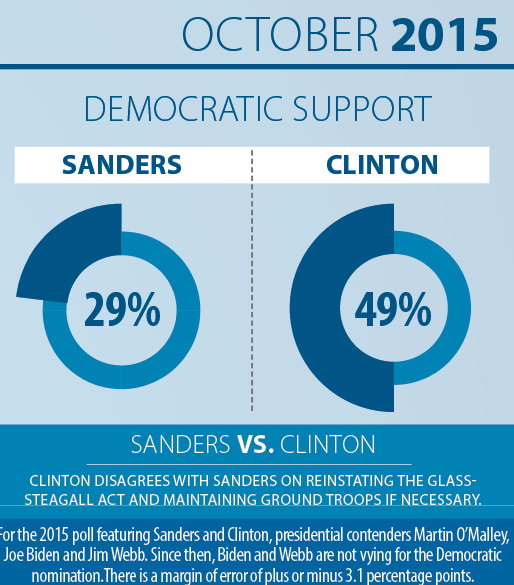
A key difference in the two campaigns is Obama’s worked to build support from Democratic circles while Sanders is competing as an outsider, said Bret Nilles, the chairman of the Linn County Democrats.
“I think difference there is Bernie is working to counter the whole political-party process,” Nilles said. “It’s harder to sustain movement like that than it is to try to build an organization through the electoral process. Obama worked with the party, and Sanders is trying to leverage the party to get his thoughts and his philosophy across.”
Sanders, who would be the first Jewish president, has rarely mentioned his ethnic background as an obstacle, unlike Obama and his African heritage. He is dealing more with his title as a democratic-socialist.
Many Republicans have demonized the term socialist and used it as an accusatory insult against Obama. But Sanders has not shied away from his political affiliation.
“Sanders is almost attacking [the label] head-on to the point where it’s not an issue,” said Tom Henderson, the chairman of the Polk County Democrats. “I think he’s using it to his advantage, because of the income disparity that we see around us today.”
Not a third term for Obama
A Clinton presidency would be nothing more than a continuation of the Obama administration, according to GOP presidential candidates and some media pundits. She, on the other hand, is working to distance herself from Obama.
“Clinton has even suggested she would continue to build upon Obama’s policies and go beyond them,” said Gayle Alberda, a political-science visiting professor at Drake University. “The problem for some voters might be that if Clinton is elected, it would be four more years of the same.”
Clinton has publicly disassociated herself from Obama in recent months.
She has come out against the Keystone XL Pipeline, and Obama hasn’t decided whether he supports it (although in February, he vetoed a congressional bill to approve the pipeline). She has also been more hawkish in opposing the Syrian regime and Russia’s actions in that country by calling for no-fly zones and stronger action on immigration reform and gun control.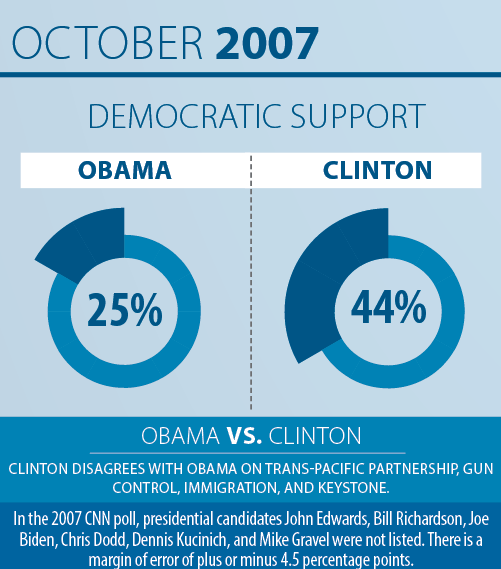
And she has been vocal about her opposition to Obama’s 11-country trade agreement, the Trans-Pacific Partnership.
“I’m not running for my husband’s third term, I’m not running for Obama’s third term, I’m running for my first term,” she said on national television in late October.
Other prominent Democrats, such as Paul McAndrew, a politically active Iowa lawyer who supports Clinton, thinks her foreign-policy experience and previous presidential campaign have proven her to be a viable, experienced candidate.
“If there’s one thing I believe from having seen her, met her, listened to her, I believe she has her own mind,” McAndrew said. “I really believe she is a person who is resolute, a person who has been what we call battle-hardened, been tested and true.”
But the amount to which she manages the balance between distancing from and praising the current administration will depend on Obama’s approval rating, said Donna Hoffman, the head of the University of Northern Iowa Political Science Department.
“In a general election, how Clinton positions herself vis-à-vis Obama will in part depend on whether Obama continues the increases in public approval we’ve seen lately or whether those numbers decline,” Hoffman said.
Currently, Obama’s approval rating stands at 47 percent, according to a Gallup poll released Nov. 1 with a 3 percentage-point margin of error.
But polling data from Democrats, shows 83 percent of likely Democratic voters approve of Obama’s administration, according to a CBS News poll from October.
And with Vice President Joe Biden out of the race, centrist Democrats will likely flock to Clinton. The two candidates could have competed for largely the same demographic, said Mack Shelly, head of the Political Science Department at Iowa State University.
“It’s possible Biden didn’t want to threaten Clinton’s status as the party’s potential nominee, but surveys had made it clear that Biden would have done substantially better than Clinton against likely Republican opponents,” he said. “More likely, Biden decided not to run because he and his family were in recovery from grieving over the loss of his son Beau.”




